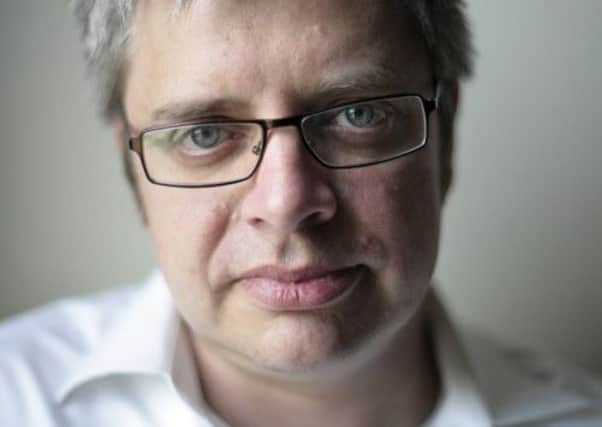Book review: Enon by Paul Harding


Enon
By Paul Harding
Random House, 238pp, £14.99
WHAT do you do if you write a dream-like, time-shifting first novel set in a small town in New England and it wins the Pulitzer Prize for fiction? If you’re Paul Harding, author of the dizzyingly good Tinkers (2009), the answer is simple: you realise you’re onto a good thing and write another dream-like, time-shifting novel, set it in the same small town in New England – a sleepy little place called Enon. You even write about the same family, the Crosbys, only this time, instead of writing about elderly clock-repairer George Washington Crosby, the bed-bound, cancer-riddled hero of the first book, you write about his grandson, Charlie Crosby, a man devastated by the loss of his teenage daughter.
As in Tinkers, when we’re first introduced to the main protagonist of Enon his story has, in a sense, already happened. In the first paragraph of the first chapter, Charlie informs us in a very matter-of-fact way that his only child, Kate, has been run over by a car and killed, and that he and his wife, Susan, have since separated. Plot-wise, that’s the majority of the action taken care of in the first few lines of the first page; the rest of the book concerns Charlie’s attempts to come to terms with what has happened to him, a process that reduces him to a stinking, shabby, drug-addicted recluse who isn’t above stealing painkillers from some of Enon’s more elderly inhabitants in order to feed his addiction.
Advertisement
Hide AdThat makes Enon sound irredeemably mawkish but it isn’t, and only very occasionally do you feel the urge to slap Charlie around the face and tell him to pull himself together. Most of the time his pain feels raw enough and real enough to keep you on his side, and besides, he’s good company, and the inside of his head is a darkly fascinating place to be.
Charlie’s first reaction to the double blow of losing his wife and daughter is to start walking “the length and breadth of Enon every day”. Partly these are psychogeographical wanderings – Charlie revisits the canal towpath where he and Kate used to go for walks, or passes the house of an old lady whose antique clock he once watched his grandfather try to fix. But walking around the town doesn’t just help Charlie feel more connected to his absent family; it also helps him tap into what Yeats might have recognised as a sort of localised spiritus mundi.
At one point Charlie observes: “There are certainly more citizens of Enon beneath its fifty-four hundred acres than there are above it. Just beneath our feet, on the other side of the surface of the earth, there is another, subterranean Enon, which conceals its secret business by conducting it too slowly for its purposes to be observed by the living.”
The more Charlie wanders around Enon (and the more drugs he takes) the more he seems to distance himself from the world of the living, and the closer he seems to the melancholy domain of the dead. This shift is beautifully illustrated towards the end of the book, when, in a moment of discombobulation which echoes the Orpheus myth and Jacques’ “All the world’s a stage” speech from As You Like It, as well as tying in with the clockwork imagery that runs through both Tinkers and Enon, Charlie starts to wonder if the real world is real at all:
“I spent so many nights sitting in, stealing through, crawling over and sometimes passing out in the cemetery... that I came to think of it and the hills and the adjacent golf courses as a large, elaborate set, constructed on a rotating stage... Some mornings I could almost hear the echo of the last gears of the stage clicking into place as the swoosh of the first sunlight ignited across the fairways... [and] I had the feeling of some familiar soul having just fled out of sight, that I might have caught a glimpse of the back of someone’s heel as she dashed offstage.”
Occasionally, Harding’s flights of fancy become too ornate for their own good. There’s one overwrought vision in particular, in which the dead of Enon make Charlie the subject of a cruel underworld pantomime, that would have made Hemingway laugh his ass off, had he still been alive to read it. There are also a few places in which the internal logic of the book starts to creak a little: could a smalltown gardener and odd job man like Charlie really draw “mandalas and particle accelerators and calendars made up of concentric moving circles and ox-turn algorithms” on his living room wall, in an attempt to “demonstrate the calculus of grief?”
Advertisement
Hide AdEveryone loves an autodidact, but somebody who can do all that should be lecturing at Harvard, not mowing lawns. There’s something irksome, too, about the way a man strung-out on drugs and booze can recall everything that happens to him on these binges in pin-sharp detail.
Then again, perhaps it’s unfair to expect this book to make sense in real-world terms. It is, after all, an attempt to chart the liminal space between life and death, sanity and madness, mourning and recovery. If everything in it made sense, it would undoubtedly have failed.